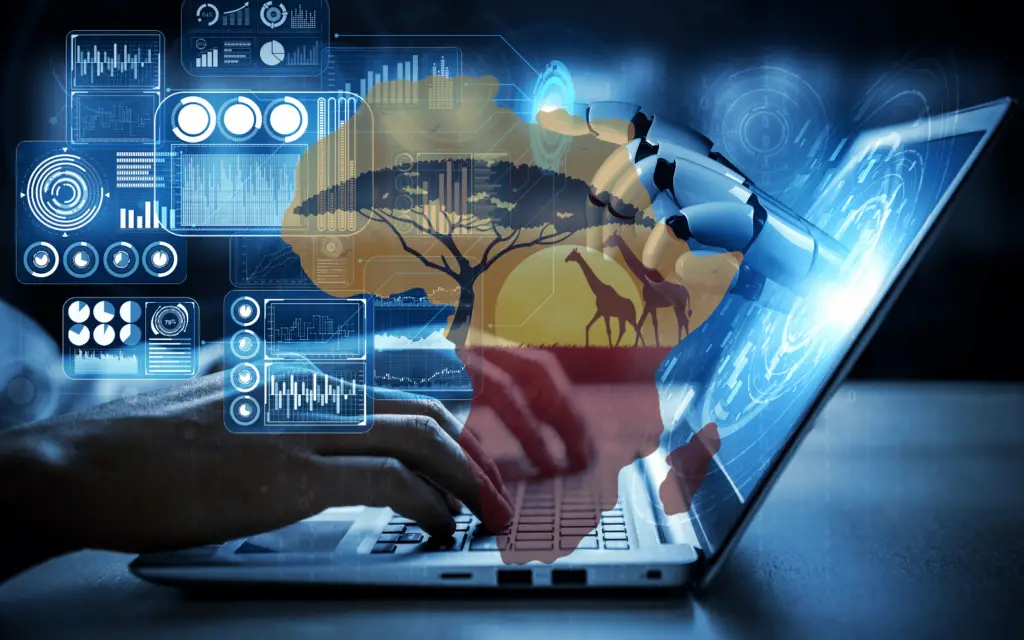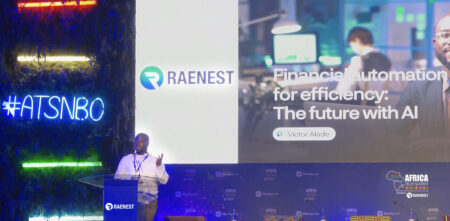- Artificial Intelligence (AI) offers new job opportunities for tech-savvy African graduates.
- African policymakers must, however, protect current employees from job losses in the new AI era.
- Gen AI has the potential to offer solutions for Africa’s medical, nutrition, and financial difficulties.
Artificial intelligence (AI) is the new frontier, offering numerous possibilities for efficient productivity. However, what does it mean for Africa’s job sector?
AI means new job opportunities for tech experts. Yet, it also means lost jobs for less tech-savvy staff. For example, Generative Artificial Intelligence (Gen AI) can generate text, images, or other media using generative models. This implies that graphic designers, copywriters, artists, personal assistants, and others are no longer needed.
“Gen AI is being embedded in everyday tools like email, word processing applications, and meeting software, which means the technology is already positioned to radically transform how people work,” writes Sandra Durth, a researcher with consulting firm, McKinsey.
Here comes AI-run workplace
AI is transforming how people work while also revolutionising the workplace altogether. “Research shows that Gen AI could enable the automation of up to 70 per cent of business activities across almost all occupations between now and 2030,” notes Durth.
Further, research shows that with the emergence of gen AI, “about half of today’s business activities could be automated a decade earlier than previous estimates had projected. ” Moreover, experts have noted that “Gen AI will profoundly affect professions traditionally requiring higher levels of education, such as educators and lawyers.”
“Gen-AI-enabled automation has already begun and, as the research shows, is likely to affect hours, tasks, and responsibilities for workers across wage rates and educational backgrounds,” the researcher forecasts.
Employees should be on the lookout as Gen AI is just starting and will only get more intelligent. “those who do not learn to work with it, starting now, will be left behind.”
Consider this: Microsoft is soon to launch Copilot, a generative AI companion that will change how we use Word, Outlook, Excel, and all of Microsoft’s applications. The Microsoft Copilot could affect the positions of secretaries, for example, and all other office assistants.
Facebook’s Mark Zuckerberg has unveiled several of Meta’s new AI products. Spotify has announced its new Gen AI feature, replicating podcasters’ voices and translating them into different languages. What does this mean for translators and voice-over artists?
The impact of Artificial intelligence on the job sector
Even the food industry is affected. Fast food chain Domino Pizza is looking to create what it describes as ‘the next generation of pizza ordering and store operations with gen AI. How will the pizza ordering AI affect the jobs of traditional order takers?
As African companies and policymakers embrace AI, the question of jobs must be central to the conversation. Policymakers should consider having companies train their staff using AI rather than replacing the existing staff.
Universities and other educational institutes, including vocational training centres, must include AI training in their curriculum. AI training must be part of these institutions ‘work-ready’ programs.
There is already a massive problem of graduates not being ‘work-ready,’ and hence, despite their degrees, they are unemployable.
“AI is as big as the Industrial Revolution in its impact… As an entrepreneur, this is as exciting as it gets. I can see the opportunity at one level. Still, it is not inevitable that [Africa will] be a part of this opportunity.” We do not want to be users any more than we want to be used, okay? We must build our own [AI] enterprises. We need to make sure that Africa is participating in the conversation,” insists Strive Masiyiwa, the Founder and Executive Chairman of Zimbabwe’s Econet Group.
“Africa has many unique issues that could be addressed by AI solutions, and these issues need to be addressed by people who understand the nuances of the context, rather than by Western counterparts. When other parts of the world aim to solve our problems, they often fail because of a lack of context and quite often cause harm,” points out Pelonomi Moiloa, Lelapa AI Co-founder.
Read also: ChatGPT: Unleashing the Power of AI Conversations.
Medical imaging
Several African companies have embarked on building their own AI applications. These include innovative protein molecule designs, local language communications, Web 3 programming, financial analysis, and medical imaging.
In that order, here are some African AI companies listed respectively. For example, the Tunisian enterprise AI startup InstaDeep created the AI application called DeepChain. This multimillion-dollar startup was bought for a whopping $685 million earlier this year. One of its top products is DeepChain, an AI application that allows for protein molecule design.
In layman’s terms, protein molecule design has considerable applications in drug and vaccine development. The AI can review billions of amino acids to help new protein molecules that can be used to create medicines and vaccines.
“Today we have the capability with machine learning models … to extract and give to biologists extremely valuable information very quickly. The value proposition is quite clear,” comments Karim Beguir, InstaDeep Co-Founder & CEO.
Also Read: South Africa to topple Nigeria and Egypt as Africa’s biggest economy
Language models evolving
South Africa has Lelapa AI, an artificial intelligence research and product lab. The company generally uses AI to solve various social and economic challenges.
However, its prize product is christened VulaVula. The AI language model application can translate any language to less popular Southern African languages.
Businesses can use VulaVula to communicate their brand messages to potential customers in their local languages.
VulaVula can translate and transform speech-to-text and text-to-speech for various South African languages, including Afrikaans, isiZulu, Sesotho, Setswana, and Xhosa.
In West Africa, you have Mazzuma (CYST) in Ghana. The company uses AI to handle mobile payments and remittances, leveraging blockchain technology and AI chatbots.
Back in South Africa, you have IPOXCap, which was only founded last year to help finance professionals and investors make better decisions faster using AI.
Artificial intelligence in financial analysis
FinanceGPT is a generative AI solution to help traders and company finance personnel perform better financial analysis.
The AI can review a company’s financial data and generate reports that allow for an easy understanding of the current financial state of a business and provide future forecasts.
Ghana is also home to minoHealth AI Labs, which provides artificial intelligence solutions for the health sector. The company has developed minoChat, a generative AI model that explicitly covers topics around radiology.
“My belief is that Africa’s youthful population could, with AI, do what China did with manufacturing. Today, there are AI governance initiatives in many African countries, AI communities in most major cities, and the start-up scene is maturing. In the next five years, I believe Africa will be considered a globally dominant force in the AI race,” predicts minoHealth Founder & CEO Darlington Akogo.











